Effective SEO and content marketing are two important parts of the same digital advertising process. Although SEO professionals don’t usually write their own content, they still need to understand how content is used and when they should hire a writer., If you’re an SEO expert, learning this discipline will drive engagement and make your campaigns that much more successful.
Understanding SEO Content Marketing
Content is inherent to the way the internet currently works, making it a natural part of the advertising sphere. Where there are search engines, there needs to be content. A content marketer capitalizes on this logic by creating articles that appeal to both search engines and the users of your site.
The Relationship Between SEO and Content Marketing
Even if modern search engines are more complicated than their predecessors, they still operate off of keyword-based logic. If you want to rank for an article about cars, you should probably put “cars” somewhere in the text on the page.
In the early days of the internet, traffic was determined by the number of times a keyword appeared on a page. This made black-hat SEO tactics incredibly simple; find a way to include more instances of a keyword, and you would automatically appear as the first result for that search. Some unscrupulous developers even went so far as to fill a page with the wrong keyword, simply because that search term was more popular than the one that their content was actually about.
The problem of keyword stuffing was solved by making search engines more intelligent. Instead of looking for keywords, they were programmed to look for word clusters, complete sentences, and adjacent topics. This a good example of word stuffing:
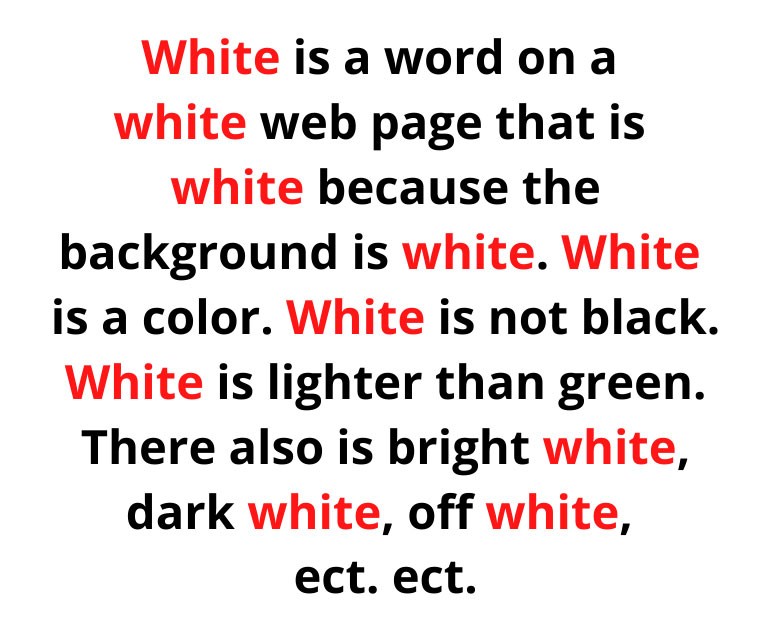
Today’s search engines do an amazing job of judging relevance and ignoring content that hasn’t been written to inform.
This relevancy-based system is brilliant because it awards the top spot to the site with the most informative or popular content. The idea is that the better a site is for its users, the higher it will rank. And since sites can only rank if they have content, the need for dedicated content strategies was born.
Of course, this system also has its faults. Basing search engine rankings on the quality of a site’s content automatically swings things in favor of those with educational and monetary privilege while ignoring the actual function of the site in question. If your site’s traffic is suffering, consider working with a content professional to help you write in a way that search engines can understand.
The Goals of a Content Strategy
Websites are built out of content – and that means there are plenty of benefits to fleshing out the content on your site. In general, content strategies drive traffic by identifying what audiences are looking for and creating something for the search engine to find.
The first and most important goal of a good content campaign is to give your site depth by providing a solid content base. Search engines love it when you provide informative, relevant content that adds clarity to your product or service. You don’t necessarily need a lot of content, but you should try to include enough to explain your business to someone completely new.
Content strategies improve your SEO by pointing traffic in the right direction. The better you explain yourself, the easier it will be for search engines to understand your website. Starting with a sitemap could be a good place to start. The following is just one example of a sitemap hierarchy:
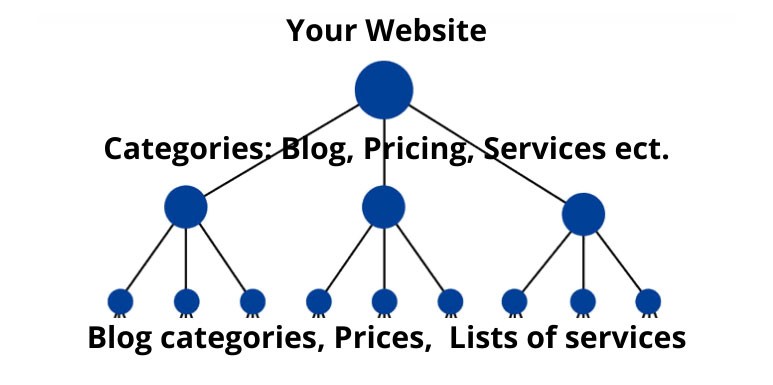
Content strategies also generate attention on social media, which can directly influence your rankings thanks to modern algorithms.
Ultimately, content strategies are popular because audiences appreciate them. Product descriptions, how-to articles, and buyers guides all make the internet more useful and accessible for everyone. Whether your company’s voice is lighthearted and entertaining or professional and pragmatic, your content should be designed to provide actual value. Value brings traffic, and traffic brings customers – and if you’re a good salesperson, you can handle the rest.
Test your SEO in 60 seconds!
Diib is one of the best SEO tools in the world. Diib uses the power of big data to help you quickly and easily increase your traffic and rankings. We’ll even let you know if you already deserve to rank higher for certain keywords.
- Easy-to-use automated SEO tool
- Keyword and backlink monitoring + ideas
- Speed, security, + Core Vitals tracking
- Intelligently suggests ideas to improve SEO
- Over 500,000k global members
- Built-in benchmarking and competitor analysis
Used by over 500k companies and organizations:
Syncs with 
What Counts as SEO Content Marketing?
Content marketing is an umbrella term for any advertising tactic that involves writing and creating digital content. If it’s written and on the internet, it’s probably related to a content campaign, unless the content was created freely for the benefit of an online community.
You Might Also Like
With that said, most examples of content-based advertising fit into a few distinct categories. Expect these categories to remain the same until there’s a major shift in the way that internet searches function – something that will eventually happen as technology progresses.
- Site copy: All SEO and content efforts direct back to your site, which is why it’s so important that you have something meaningful written on the pages. This includes product descriptions, services, and even staff biographies. Remember, everything you publish becomes part of your brand. Information such as the following are part of site copy:
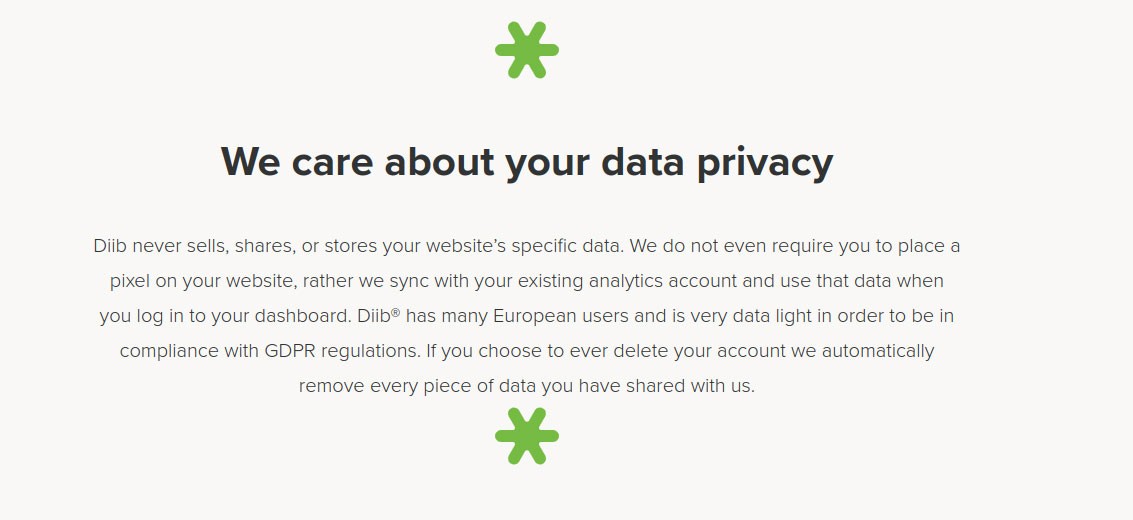
- Meta content: Meta titles and descriptions are particularly important because they show up as snippets in search results. Neglecting this part of your content plan will doom your articles to poor impressions and even poorer clicks.
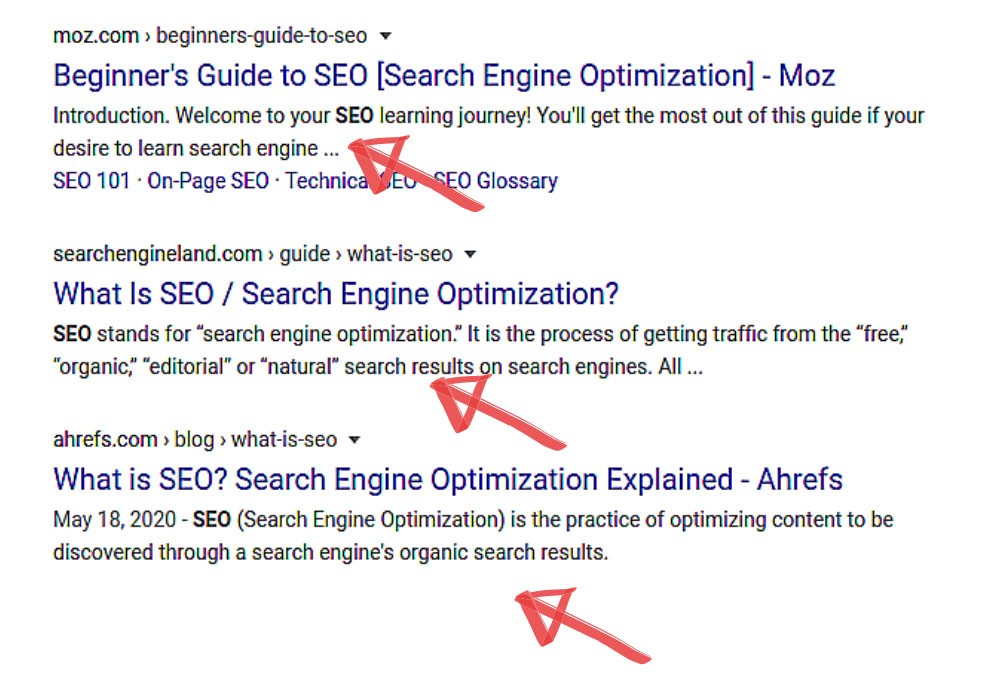
- Blogs and articles: Blog posts are the most standard element of a content strategy. They’re attractive to search engines, shareable on social media, and easy to create. Guest blog posts can also be used to generate interest for your site on other platforms.
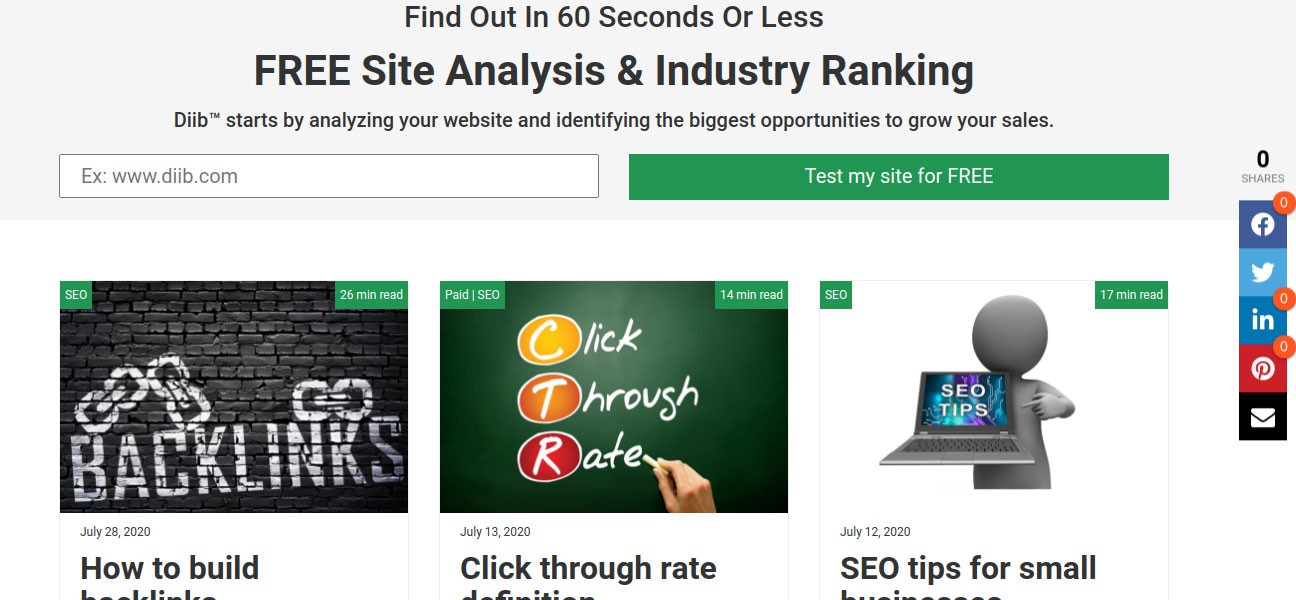
- Social media posts: Social media and content strategies might not have been made for each other, but they still go hand in hand. Social media is a great way to establish your presence, and everything you post on social media should be part of your content plan.
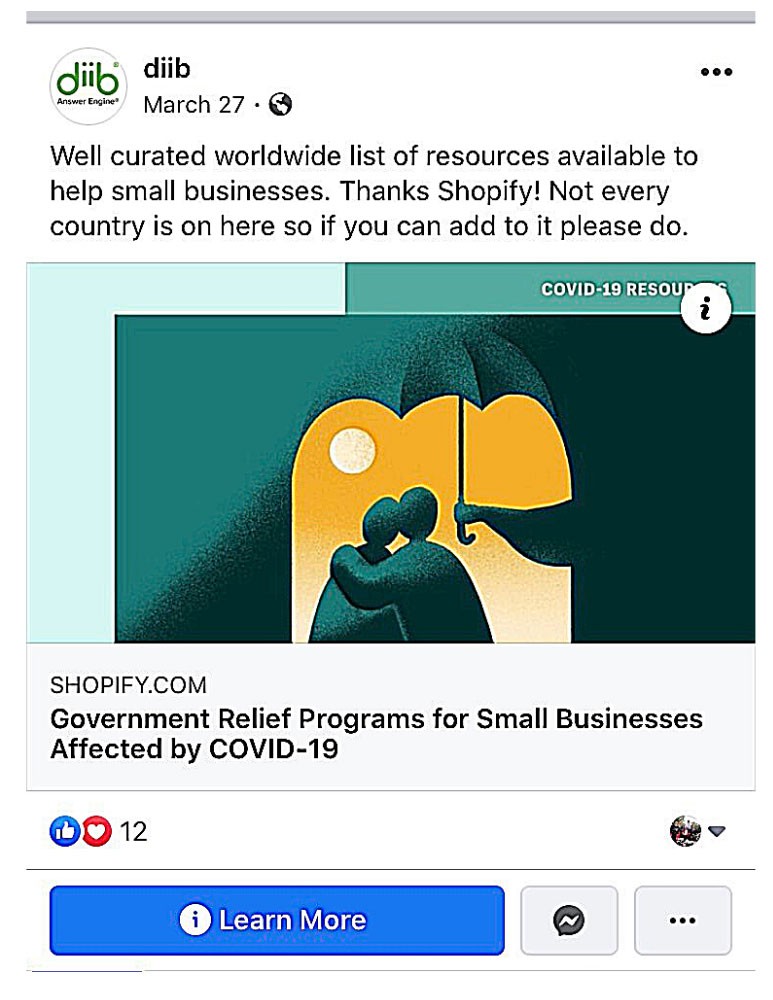
- Shareable assets: Ebooks, case studies, and infographics are all examples of digital assets that can be used for your advertising campaign. Some assets are meant to be shared freely on social media, while others are used as lead magnets to convert viewers into sales. Here is an example of case studies at work:

The Difference Between SEO and Content Marketing
Although content strategies and SEO are closely related, the two disciplines are definitely distinct. An SEO professional might not be able to create your content, and a great content marketer might only have a light understanding of SEO.
The relationship between SEO and content marketing is very similar to the way that web development and graphic design go hand in hand. SEO generates traffic and points it at your website; content strategies make sure that there’s something waiting on the other side. Content strategies can also be used as a tool to generate interest and traffic, resulting in a higher place in most search results.
An SEO professional is a master of site structure and search engine logic. They’ll be able to tell you exactly what kind of content you need to be more successful; but unless they’re also a talented writer, your SEO consultant will probably look for a copywriter to help you put the plan into place.
A good copywriter will know basic SEO principles and should generally be able to format your pages, especially if you give them a guide. However, most copywriters view their job as very creative; they’ll be great at coming up with new advertising campaigns, but they might not understand the ins and outs of search engine algorithms.
To run a truly successful SEO content marketing strategy, you should work with both an SEO specialist and a content creator. Some SEO specialists have an in-house writer. If you plan on making content strategies a regular part of your advertising plan, you may also consider hiring an in-house writer to be the voice of your company.
FACT: 70% of marketers are actively investing in content marketing. (HubSpot, 2020)
Creating Your SEO Content Marketing Strategy
Your content strategy includes all of your plans for creating real, relevant content that will attract both search engines and readers. You can focus on social media posts, informative articles, or even videos; the important thing is that you generate an online presence for potential customers to find.
Common Goals for Content Campaigns
Before you start a content strategy, you should understand what you’re trying to accomplish. You’ll probably enter your campaign from an SEO standpoint, with the goal being to generate traffic for a specific keyword or landing page. As you move forward, you’ll also start to see the benefits that come from developing your site with a high-quality content base.
- Educate your customers: Customers need to know how your product or service works. If you find yourself constantly answering questions, your site could probably benefit from a few informational pages and posts.
- Solidify your brand identity: Nothing establishes your voice quite like using it. Writing blogs posts helps clients understand who you are and convinces the right audience members to work with you.
- Engage on social media: You can’t post on social media if you have nothing to share. Creating content gives you a reason to interact with and engage your followers on a lasting basis.
- Drive traffic to a landing page: Landing pages are necessary for most online advertising campaigns. Content is needed for the page itself, but blog posts can also be used to send traffic in that direction.
- Generate conversions and leads: Fundamentally, a great piece of content should be able to convince the reader to at least take an interest in your services. You can also offer content in exchange for an email address, giving you a solid chance to close the sale.
Keyword Research and Content Marketing
Keyword research is a good way to identify topics that will attract an audience; if the keywords are being searched, someone wants to read about them. Your goal should be to create content that targets keywords that receive a lot of attention and which are related to your brand.
If you’re already an SEO analyst, finding keywords to work with should be easy. However, you can also do research with free tools like the Google AdWords Keyword Planner or the popular and simply-named Keyword Tool. To use one of these tools, try typing in the first word you can think of that relates to your business. The tool’s search engine should then provide a list of similar keywords, along with information about how much traffic each word gets.
Keep a list of your favorite keywords in a text file or spreadsheet. Remember, the keywords you identify need to make sense for your business. You should also keep in mind that there will be more competition for keywords with a lot of traffic. Your best bet is to find words that are relevant, interesting, and highly targeted towards your brand. The Diib® keyword research tool can help you formulate an effective strategy for your content marketing goals. Here is an example of what that page may look like:
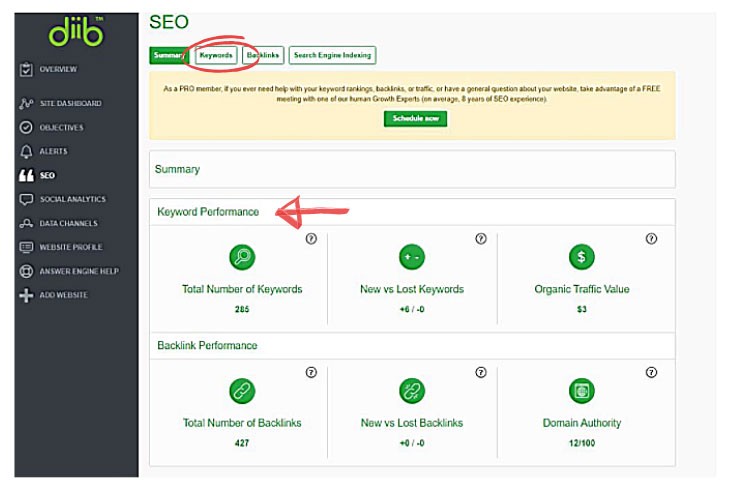
How Does Social Media Support Content Marketing?
In the modern internet environment, “how does social media support content marketing” is a surprisingly common question. The truth is that many content marketers are also skilled at social media management, and many social media managers have done their time in the world of content creation. Just like effective SEO and content marketing build off of one another, so does great content lead to an even better social media campaign.
Social media is one of the best ways to get views for new blog posts and articles. No one uses an RSS feed anymore, so you’ll need another way to put your posts in front of their eyes. Facebook and Twitter are eternal favorites, but you can also have professional success by posting on LinkedIn. You also shouldn’t forget to make profiles on communities that are already related to your industry or craft.
Whether or not Google uses Facebook and Twitter links to determine rankings is slightly up for debate. Matt Cutts, a long-term Google employee and former head of their webspam team, has given conflicting answers over the years. It looks like Google used to treat social media links like normal, but they aren’t currently treated as a standard “ranking signal.”
Either way, going viral on social media does seem to positively impact both your traffic and your rankings. No matter how Google’s algorithm works, posting on social media is the best way to get exposure for your content. This makes social media an integral part of any modern content strategy.
FACT: 94% of marketers use social media for content distribution. (SEMrush, 2019) (Source:Hubspot)
We hope that you found this article useful.
If you want to know more interesting about your site health, get personal recommendations and alerts, scan your website by Diib. It only takes 60 seconds.
Remember the Meta Description
Meta content has always been an essential part of SEO. Although the days of stuffing keywords into meta tags have long since passed, you still need to populate this content. In fact, completed metadata might be one of the things that separates professional websites from the rest of the pack.
Metadata typically includes a title, a description, and potentially a photo. This information is what appears in search engines and on social media when you share an article. If you don’t include a meta description, the snippet will be pulled from your content until the word count is reached. Depending on how your site is designed, this could end up looking terrible for your brand.
Planning ahead for snippets is easy; just write a short description for every piece of content you create. Most content management systems prompt you to enter metadata before you actually publish the piece. These are the relevant meta data portions:
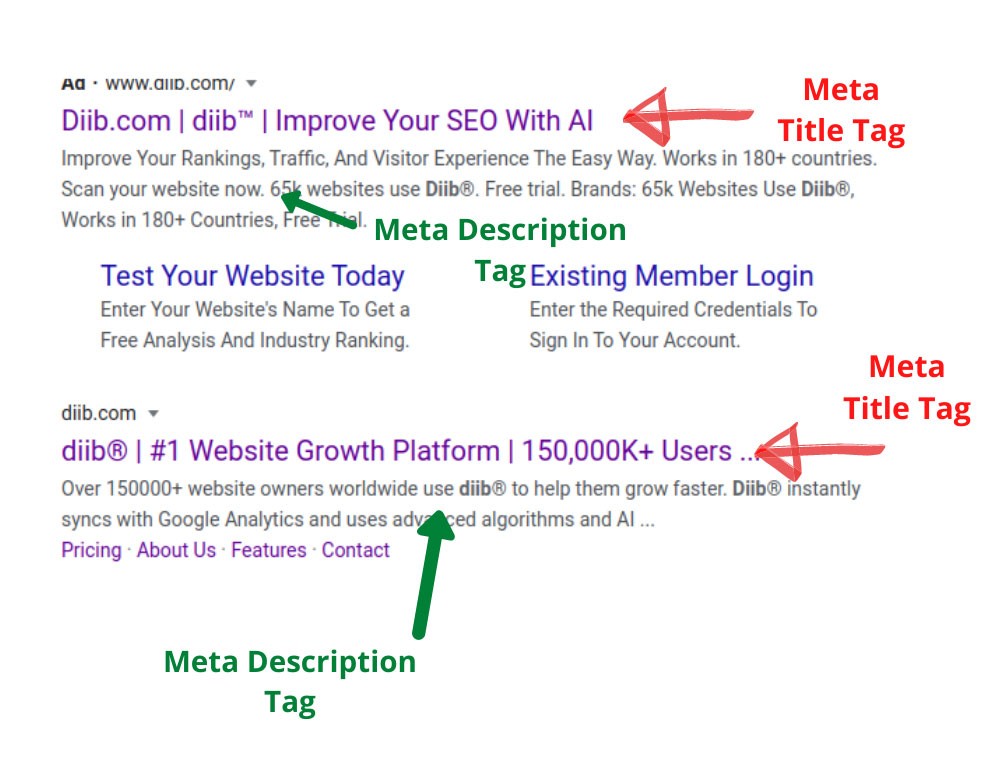
Going Local with Your Content and SEO
Designing content for a local SEO campaign isn’t that different from creating a normal content strategy. The main difference is that you’ll need to use location-based keywords to target the area where your customers live. If you work with an unskilled writer, this can result in awkward content that doesn’t really mesh with the rest of your site.
One of the best ways to work with local keywords is to create content that’s custom-designed for that area. Think about your local culture and the things that resonate with your community. Make references to local landmarks and sports teams, or simply write with a voice that you know your neighbors will respond to. If you have the skills, you might be the best person to write for your local SEO campaign; just ask a professional to edit for clarity before you publish the results.
An effective SEO and content marketing campaign uses the information gained from search engine research to design content that will drive more traffic to your site. When you write great content and structure it so that search engines can read it, you make your website more accessible and guarantee that more clients will be able to walk through your virtual door.
Diib®: Refine Your Content Marketing Strategy
Diib works with companies of all sizes all over the world to optimize their content strategy and improve their overall SEO presence. Our professional Growth Experts can help you in determining the correct content channels for your growing business. Some of the Diib features you’ll love include:
- Use the keyword and backlink competitor research tools to find what keywords your competitors are ranking for and create content around those keywords.
- Use Diib® to understand key metrics, like bounce rate and returning visitors, for your specific content.
- See how your Facebook page followers like content you share.
Click here for a free 60 second site analysis or call 800-303-3510 to chat with a Growth Expert today!Effective SEO and content marketing are two important parts of the same digital advertising process. Although SEO professionals don’t usually write their own content, they still need to understand how content is used and when they should hire a writer., If you’re an SEO expert, learning this discipline will drive engagement and make your campaigns that much more successful.
Understanding SEO Content Marketing
Content is inherent to the way the internet currently works, making it a natural part of the advertising sphere. Where there are search engines, there needs to be content. A content marketer capitalizes on this logic by creating articles that appeal to both search engines and the users of your site.
The Relationship Between SEO and Content Marketing
Even if modern search engines are more complicated than their predecessors, they still operate off of keyword-based logic. If you want to rank for an article about cars, you should probably put “cars” somewhere in the text on the page.
In the early days of the internet, traffic was determined by the number of times a keyword appeared on a page. This made black-hat SEO tactics incredibly simple; find a way to include more instances of a keyword, and you would automatically appear as the first result for that search. Some unscrupulous developers even went so far as to fill a page with the wrong keyword, simply because that search term was more popular than the one that their content was actually about.
The problem of keyword stuffing was solved by making search engines more intelligent. Instead of looking for keywords, they were programmed to look for word clusters, complete sentences, and adjacent topics. This a good example of word stuffing:

Today’s search engines do an amazing job of judging relevance and ignoring content that hasn’t been written to inform.
This relevancy-based system is brilliant because it awards the top spot to the site with the most informative or popular content. The idea is that the better a site is for its users, the higher it will rank. And since sites can only rank if they have content, the need for dedicated content strategies was born.
Of course, this system also has its faults. Basing search engine rankings on the quality of a site’s content automatically swings things in favor of those with educational and monetary privilege while ignoring the actual function of the site in question. If your site’s traffic is suffering, consider working with a content professional to help you write in a way that search engines can understand.
The Goals of a Content Strategy
Websites are built out of content – and that means there are plenty of benefits to fleshing out the content on your site. In general, content strategies drive traffic by identifying what audiences are looking for and creating something for the search engine to find.
The first and most important goal of a good content campaign is to give your site depth by providing a solid content base. Search engines love it when you provide informative, relevant content that adds clarity to your product or service. You don’t necessarily need a lot of content, but you should try to include enough to explain your business to someone completely new.
Content strategies improve your SEO by pointing traffic in the right direction. The better you explain yourself, the easier it will be for search engines to understand your website. Starting with a sitemap could be a good place to start. The following is just one example of a sitemap hierarchy:

Content strategies also generate attention on social media, which can directly influence your rankings thanks to modern algorithms.
Ultimately, content strategies are popular because audiences appreciate them. Product descriptions, how-to articles, and buyers guides all make the internet more useful and accessible for everyone. Whether your company’s voice is lighthearted and entertaining or professional and pragmatic, your content should be designed to provide actual value. Value brings traffic, and traffic brings customers – and if you’re a good salesperson, you can handle the rest.
What Counts as SEO Content Marketing?
Content marketing is an umbrella term for any advertising tactic that involves writing and creating digital content. If it’s written and on the internet, it’s probably related to a content campaign, unless the content was created freely for the benefit of an online community.
With that said, most examples of content-based advertising fit into a few distinct categories. Expect these categories to remain the same until there’s a major shift in the way that internet searches function – something that will eventually happen as technology progresses.
- Site copy: All SEO and content efforts direct back to your site, which is why it’s so important that you have something meaningful written on the pages. This includes product descriptions, services, and even staff biographies. Remember, everything you publish becomes part of your brand. Information such as the following are part of site copy:

- Meta content: Meta titles and descriptions are particularly important because they show up as snippets in search results. Neglecting this part of your content plan will doom your articles to poor impressions and even poorer clicks.

- Blogs and articles: Blog posts are the most standard element of a content strategy. They’re attractive to search engines, shareable on social media, and easy to create. Guest blog posts can also be used to generate interest for your site on other platforms.

- Social media posts: Social media and content strategies might not have been made for each other, but they still go hand in hand. Social media is a great way to establish your presence, and everything you post on social media should be part of your content plan.

- Shareable assets: Ebooks, case studies, and infographics are all examples of digital assets that can be used for your advertising campaign. Some assets are meant to be shared freely on social media, while others are used as lead magnets to convert viewers into sales. Here is an example of case studies at work:

The Difference Between SEO and Content Marketing
Although content strategies and SEO are closely related, the two disciplines are definitely distinct. An SEO professional might not be able to create your content, and a great content marketer might only have a light understanding of SEO.
The relationship between SEO and content marketing is very similar to the way that web development and graphic design go hand in hand. SEO generates traffic and points it at your website; content strategies make sure that there’s something waiting on the other side. Content strategies can also be used as a tool to generate interest and traffic, resulting in a higher place in most search results.
An SEO professional is a master of site structure and search engine logic. They’ll be able to tell you exactly what kind of content you need to be more successful; but unless they’re also a talented writer, your SEO consultant will probably look for a copywriter to help you put the plan into place.
A good copywriter will know basic SEO principles and should generally be able to format your pages, especially if you give them a guide. However, most copywriters view their job as very creative; they’ll be great at coming up with new advertising campaigns, but they might not understand the ins and outs of search engine algorithms.
To run a truly successful SEO content marketing strategy, you should work with both an SEO specialist and a content creator. Some SEO specialists have an in-house writer. If you plan on making content strategies a regular part of your advertising plan, you may also consider hiring an in-house writer to be the voice of your company.
FACT: 70% of marketers are actively investing in content marketing. (HubSpot, 2020)
Creating Your SEO Content Marketing Strategy
Your content strategy includes all of your plans for creating real, relevant content that will attract both search engines and readers. You can focus on social media posts, informative articles, or even videos; the important thing is that you generate an online presence for potential customers to find.
Common Goals for Content Campaigns
Before you start a content strategy, you should understand what you’re trying to accomplish. You’ll probably enter your campaign from an SEO standpoint, with the goal being to generate traffic for a specific keyword or landing page. As you move forward, you’ll also start to see the benefits that come from developing your site with a high-quality content base.
- Educate your customers: Customers need to know how your product or service works. If you find yourself constantly answering questions, your site could probably benefit from a few informational pages and posts.
- Solidify your brand identity: Nothing establishes your voice quite like using it. Writing blogs posts helps clients understand who you are and convinces the right audience members to work with you.
- Engage on social media: You can’t post on social media if you have nothing to share. Creating content gives you a reason to interact with and engage your followers on a lasting basis.
- Drive traffic to a landing page: Landing pages are necessary for most online advertising campaigns. Content is needed for the page itself, but blog posts can also be used to send traffic in that direction.
- Generate conversions and leads: Fundamentally, a great piece of content should be able to convince the reader to at least take an interest in your services. You can also offer content in exchange for an email address, giving you a solid chance to close the sale.
Keyword Research and Content Marketing
Keyword research is a good way to identify topics that will attract an audience; if the keywords are being searched, someone wants to read about them. Your goal should be to create content that targets keywords that receive a lot of attention and which are related to your brand.
If you’re already an SEO analyst, finding keywords to work with should be easy. However, you can also do research with free tools like the Google AdWords Keyword Planner or the popular and simply-named Keyword Tool. To use one of these tools, try typing in the first word you can think of that relates to your business. The tool’s search engine should then provide a list of similar keywords, along with information about how much traffic each word gets.
Keep a list of your favorite keywords in a text file or spreadsheet. Remember, the keywords you identify need to make sense for your business. You should also keep in mind that there will be more competition for keywords with a lot of traffic. Your best bet is to find words that are relevant, interesting, and highly targeted towards your brand. The Diib® keyword research tool can help you formulate an effective strategy for your content marketing goals. Here is an example of what that page may look like:

How Does Social Media Support Content Marketing?
In the modern internet environment, “how does social media support content marketing” is a surprisingly common question. The truth is that many content marketers are also skilled at social media management, and many social media managers have done their time in the world of content creation. Just like effective SEO and content marketing build off of one another, so does great content lead to an even better social media campaign.
Social media is one of the best ways to get views for new blog posts and articles. No one uses an RSS feed anymore, so you’ll need another way to put your posts in front of their eyes. Facebook and Twitter are eternal favorites, but you can also have professional success by posting on LinkedIn. You also shouldn’t forget to make profiles on communities that are already related to your industry or craft.
Whether or not Google uses Facebook and Twitter links to determine rankings is slightly up for debate. Matt Cutts, a long-term Google employee and former head of their webspam team, has given conflicting answers over the years. It looks like Google used to treat social media links like normal, but they aren’t currently treated as a standard “ranking signal.”
Either way, going viral on social media does seem to positively impact both your traffic and your rankings. No matter how Google’s algorithm works, posting on social media is the best way to get exposure for your content. This makes social media an integral part of any modern content strategy.
FACT: 94% of marketers use social media for content distribution. (SEMrush, 2019) (Source:Hubspot)
Remember the Meta Description
Meta content has always been an essential part of SEO. Although the days of stuffing keywords into meta tags have long since passed, you still need to populate this content. In fact, completed metadata might be one of the things that separates professional websites from the rest of the pack.
Metadata typically includes a title, a description, and potentially a photo. This information is what appears in search engines and on social media when you share an article. If you don’t include a meta description, the snippet will be pulled from your content until the word count is reached. Depending on how your site is designed, this could end up looking terrible for your brand.
Planning ahead for snippets is easy; just write a short description for every piece of content you create. Most content management systems prompt you to enter metadata before you actually publish the piece. These are the relevant meta data portions:

Going Local with Your Content and SEO
Designing content for a local SEO campaign isn’t that different from creating a normal content strategy. The main difference is that you’ll need to use location-based keywords to target the area where your customers live. If you work with an unskilled writer, this can result in awkward content that doesn’t really mesh with the rest of your site.
One of the best ways to work with local keywords is to create content that’s custom-designed for that area. Think about your local culture and the things that resonate with your community. Make references to local landmarks and sports teams, or simply write with a voice that you know your neighbors will respond to. If you have the skills, you might be the best person to write for your local SEO campaign; just ask a professional to edit for clarity before you publish the results.
An effective SEO and content marketing campaign uses the information gained from search engine research to design content that will drive more traffic to your site. When you write great content and structure it so that search engines can read it, you make your website more accessible and guarantee that more clients will be able to walk through your virtual door.
Diib®: Refine Your Content Marketing Strategy
Diib works with companies of all sizes all over the world to optimize their content strategy and improve their overall SEO presence. Our professional Growth Experts can help you in determining the correct content channels for your growing business. Some of the Diib features you’ll love include:
- Use the keyword and backlink competitor research tools to find what keywords your competitors are ranking for and create content around those keywords.
- Use Diib® to understand key metrics, like bounce rate and returning visitors, for your specific content.
- See how your Facebook page followers like content you share.
Click here for a free 60 second site analysis or call 800-303-3510 to chat with a Growth Expert today!
FAQ’s
Longer content often produces higher search rankings. Studies have shown that more often than not, search results on the first page of Google contain longer articles.
The ultimate goal of content marketing is to create conversions; to improve customer engagement and develop specific targets. Effective content marketing strives to change the customer’s behavior with the company toward a positive goal.
The facts are, content marketing costs 62% less than outbound marketing AND content marketing also generates 3 times as many leads. This makes content marketing more effective, easier to start and much more popular with consumers.
A freelance content writer can work for either online or offline publications (or both). As a freelance web content writer, you get paid to create content for the Web.
To effectively decide what forms of content your brand needs to grow, you first need to look at the unique attributes of your brand and its emotional connection with its customers. Then decide what kind of information is needed to reach your customers or potential customers.
Search Engine Optimization (SEO) refers to the technical portion of promoting and increasing the quality and quantity of traffic to your website. Content marketing, on the other hand, is more focused on producing valuable and relevant content to produce quality consumer action. SEO without content marketing could be referred to as a body without a soul.



